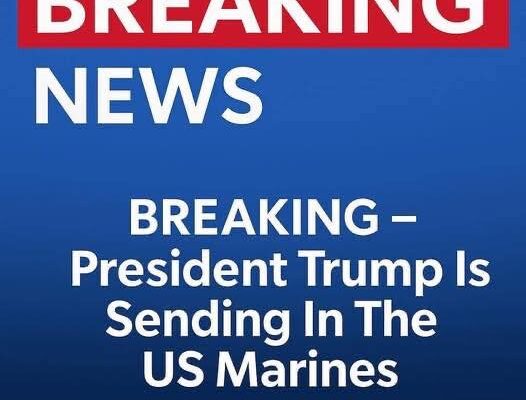The quiet deployment of 200 U.S. Marines to assist Immigration and Customs Enforcement (ICE) facilities in Florida has ignited sharp debate across the country, raising questions about the growing role of the military in domestic immigration enforcement.
A “Support-Only” Mission
According to the Department of Defense, the Marines have been assigned to logistical and administrative roles within ICE detention centers. Officials stress that they are not involved in law enforcement actions, arrests, or deportations. Instead, their duties reportedly include streamlining facility operations, managing paperwork, and assisting with transportation logistics.
Despite these assurances, the very image of uniformed, active-duty military personnel stationed inside immigration detention centers has unsettled many observers.
Expanding to Other States
The Pentagon confirmed that the Florida deployment is part of a larger federal effort to reinforce ICE in politically sensitive states such as Louisiana and Texas. These regions have faced mounting immigration pressures, with detention facilities often operating at or beyond capacity. Officials argue that the Marines’ presence will help reduce operational strain and improve efficiency during a time of heightened border challenges.
Critics Warn of Militarization
Civil liberties groups and immigration advocates, however, say the move represents a troubling shift. They argue that blending military support with immigration enforcement risks normalizing a militarized approach to handling migrants, asylum seekers, and detainees.
“Even if the Marines are only pushing papers, their presence inside ICE centers changes the optics dramatically,” said one policy analyst. “It sends a message that immigration is not just a civil or humanitarian issue but a security threat that requires soldiers.”
Supporters Call It “Practical”
On the other hand, supporters of the deployment view it as a practical solution. They argue that ICE has been overstretched, and additional manpower from the military ensures smoother operations without diverting resources from critical law enforcement tasks.
“Detention centers are overwhelmed,” one DHS official explained. “The Marines are not there to carry weapons or make arrests. They’re there to keep the system running.”
A Symbol With Broader Implications
Even if the Marines’ mission is non-combative, experts say the symbolism of soldiers working alongside immigration authorities cannot be ignored. The deployment blurs traditional boundaries between civilian law enforcement and military roles on U.S. soil — a division that has historically been maintained to prevent government overreach.
Conclusion
While officials insist the Marines’ presence is limited to support tasks, the deployment has triggered a broader national conversation about the role of the military in immigration enforcement. For some, it is a sensible use of resources to help manage a strained system. For others, it represents a dangerous step toward militarizing immigration policy and escalating tensions in an already divided political climate.



